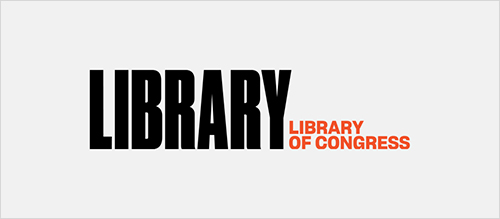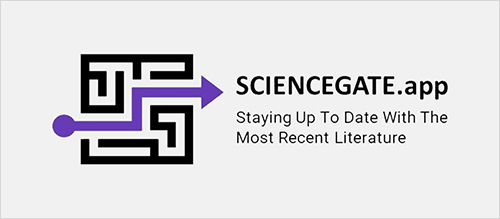ANALISIS TANGGUNG JAWAB GURU BIDANG STUDI AQIDAH AKHLAK DALAM MELAKSANAKAN PEMBELAJARAN SAAT PANDEMI COVID-19 DI MTsN 5 PIDIE
DOI:
https://doi.org/10.22373/fitrah.v4i2.2180Keywords:
Responsibility, Aqidah Akhlak Teacher, Learning, Covid-19Abstract
The implementation of learning during the Covid-19 period has undergone a fundamental change from face-to-face learning to a bold learning system. This certainly affects the teacher's responsibility in carrying out these learning activities, including the Aqidah Akhlak subject teacher at MTsN 5 Pidie. The purpose of this study was to find out the responsibilities of moral aqidah teachers in implementing learning during the Covid-19 pandemic at MTsN 5 Pidie, implementing the responsibilities of moral aqidah teachers in carrying out learning during the Covid-19 period and teacher obstacles in implementing the responsibilities of learning moral aqidah during the Covid-19 period. at MTs N 5 Pidie. This study uses a descriptive approach and type of research. The subjects of this study consisted of Aqidah Ahklak teachers and students. Data collection techniques were carried out by observation, interviews, questionnaires and documentation. Based on the results of the study, it can be seen that the form of responsibility of the Aqidah Akhlak teacher during the Covid-19 period at MTsN 5 Pidie is to increase student interest and perseverance in learning, complete professional assignments, motivate students to be active and enthusiastic about learning, carry out activities according to a predetermined schedule and learning outcomes. students at MTsN 5 Pidie. The implementation of teacher responsibilities in learning Aqidah Akhlak during the Covid-19 period at MTs N 5 Pidie provides motivation and encouragement for student learning during Covid-19, carries out learning activities according to the provisions of the Ministry of Education and Culture, shapes students' personalities in accordance with Islam, provides guidance and fostering the morals of students, both the morals of Allah SWT, the morals of fellow human beings and the morals of the surrounding environment. The teacher's obstacles in implementing the Aqidah Akhlak learning responsibilities during the Covid-19 period at MTs N 5 Pidie are limited learning facilities, the level of knowledge of Aqidah Akhlak teachers and students who are still minimal regarding learning applications, the difficulty of teachers in controlling students during learning and obstacles in evaluating evaluations.
References
Burhan Bugin. 2009. Komunikasi, Ekonomi dan Kebijakan Publik Serta Ilmu-Ilmu Sosisal Lainnya. Jakarta: Kencana.
Fathiyah, dkk. 2020. Pedoman Kesiapan Menghadapi Coronavirus Disease (Covid-19). Jakarta: Direktorat Jenderal Pencegahan dan Pengendalian Penyakit.
Idrus, Muhammad. 2009. Metode Penelitian Ilmu Sosial. Yogyakarta: Erlangngga.
Komaruddin. 2001. Ensiklopedia Manajemen. Jakarta : Bumi Aksara.
Muhaimin. 2004. Wacana Pengembangan Pendidikan Islam. Yogyakarta: Pustaka Pelajar.
Muhibbin Syah. 2003. Psikologi Pendidikan dengan Pendekatan Baru. Bandung: Remaja Rosdakarya.
Nana Sudjana. 2021. Dasar-Dasar Proses Belajar Mengajar. Bandung: Sinar Baru Algensindo.
Narbuko dan Abu Achmadi. 2004. Metodologi Penelitian. Jakarta: Bumi Aksara.
Oemar Hamalik. 2004. Proses Belajar Mengajar. Jakarta: Bumi Aksara.
Peraturan Menteri Agama Republik Indonesia. Nomor 2 tahun 2008. Standar Kompetensi dan Standar Isi.
Ramayulis. 2013. Profesi & Etika Keguruan, Jakarta: Kalam Mulia.
Roestiyah NK. 2021. Masalah-Masalah Ilmu Keguruan. Jakarta: Bina Aksara.
Salim, Peter dan Yenny Salim. 2002. Kamus Bahasa Indonesia Kontemporer. Jakarta: Modern English Press.
Sudarwan Danim. 2012. Profesionalisasi dan Etika Profesi Guru. Bandung: Alfabeta.
Sugiyono. 2012. Metode Penelitian Pendidikan Pendekatan Kuantitatif, Kualitatif, dan R & D. Bandung: Alfabeta.
Sukardi. 2013. Metode Penelitian Pendidikan Tindakan Kelas: Implementasi dan Pengembangannya. Jakarta: Bumi Aksara.
Wijaya & Tabrani Rusyan. 1994. Kemampuan Guru dalam Proses Belajar Mengajar. Bandung: Remaja Rosdakarya.
Yunahar Ilyas. 1992. Kuliah Aqidah Islam. Yogyakarta: Lembaga Pengkajian dan Pengamalan Islam- LPPI. UMY.
Downloads
Published
How to Cite
Issue
Section
License
Authors who publish in this journal agree to the following terms:
- Authors retain copyright and grant the journal right of first publication with the work simultaneously licensed Attribution-NonCommercial-ShareAlike 4.0 International (CC BY-NC-SA 4.0) that allows others to share the work with an acknowledgment of the work's authorship and initial publication in this journal.
- Authors can enter into separate, additional contractual arrangements for the non-exclusive distribution of the journal's published version of the work (e.g., post it to an institutional repository or publish it in a book), with an acknowledgment of its initial publication in this journal.
- Authors are permitted and encouraged to post their work online (e.g., in institutional repositories or on their website) before and during the submission process, as it can lead to productive exchanges and earlier and greater citation of published work. (See The Effect of Open Acces)


.jpg)
.jpg)
.jpg)
.jpg)




















